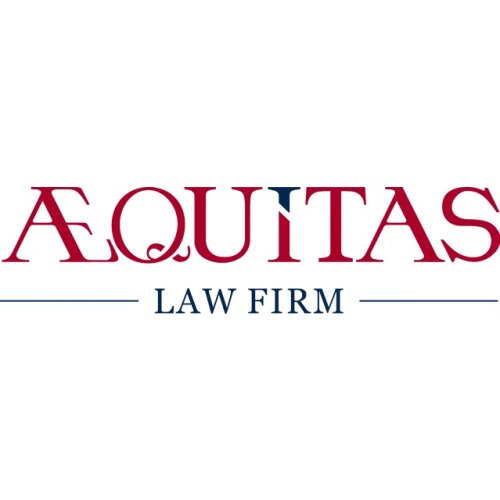Best Project Finance Lawyers in Almaty
Share your needs with us, get contacted by law firms.
Free. Takes 2 min.
List of the best lawyers in Almaty, Kazakhstan
About Project Finance Law in Almaty, Kazakhstan
Project finance is a specialized area of finance primarily focused on funding long-term infrastructure, industrial, and other major projects using a non-recourse or limited recourse financial structure. In Almaty, Kazakhstan, project finance is a key aspect of economic development, supporting projects in sectors such as energy, mining, construction, transportation, and public infrastructure. Given the strategic location of Almaty as both a financial hub and a gateway to Central Asia, project finance law plays a significant role in facilitating and regulating these large-scale investments.
The legal framework around project finance in Kazakhstan is influenced by both national regulations and international best practices to foster investment, protect investors’ interests, and ensure the sustainable development of critical projects.
Why You May Need a Lawyer
Engaging in project finance requires a comprehensive understanding of complex legal, financial, and regulatory challenges. Here are some common situations where hiring an experienced project finance lawyer in Almaty is essential:
- Structuring a new project finance deal, including risk allocation and contract drafting
- Negotiating with lenders, investors, contractors, or government authorities
- Reviewing and drafting project and financing agreements such as loan agreements, shareholder agreements, and security documents
- Conducting legal due diligence on the project's structure, permits, licenses, and land use
- Ensuring compliance with local laws, international treaties, and sector-specific regulations
- Advising on tax optimization in the context of the project
- Assisting with dispute resolution, enforcement, and restructuring of projects in distress
Without legal assistance, project sponsors and financiers risk costly errors, regulatory penalties, project delays, and even project failure.
Local Laws Overview
Project finance in Almaty, Kazakhstan operates under a legal system that blends national laws with international contractual standards. The primary legislation affecting project finance includes the Civil Code of the Republic of Kazakhstan, laws on investments, laws on public-private partnership (PPP), foreign currency regulations, and tax codes. Additionally, sector-specific regulations apply to projects in areas such as energy, mining, and transportation.
Key aspects of local project finance law include:
- Security Arrangements: The law allows a wide range of security instruments, including mortgages, pledges, and assignments of rights, to secure project finance loans.
- Public-Private Partnership Regulations: Kazakhstan has well-defined PPP laws that outline government support mechanisms, risk allocation, concessions, and dispute resolution procedures.
- Foreign Investment Protections: Investors enjoy certain guarantees against expropriation, nationalization, and discrimination. Repatriation of profits is generally allowed, subject to local currency controls.
- Permits and Licensing: Most projects require sector-specific permits, environmental consents, and land use approvals.
- Dispute Resolution: Parties often choose international arbitration for complex disputes, and Kazakhstan is a member of the New York Convention, which facilitates the enforcement of arbitral awards.
A specialized court within the Astana International Financial Centre (AIFC) also serves as a neutral venue for commercial disputes, accessible to parties in major projects across the country.
Frequently Asked Questions
What is project finance and how is it different from traditional corporate lending?
Project finance refers to funding a project based primarily on its expected cash flows, with lenders having limited or no recourse to the sponsors' balance sheets. In contrast, traditional corporate lending relies on the overall creditworthiness of the borrowing company.
What types of projects are commonly financed through project finance in Kazakhstan?
Commonly financed projects include energy generation, oil and gas developments, mining operations, toll roads, airports, water and wastewater facilities, and large-scale real estate developments.
Are foreign investors allowed to participate in project finance in Kazakhstan?
Yes, Kazakhstan encourages foreign investment in large infrastructure and industry projects, offering protective legal guarantees to attract international financiers.
What are the typical forms of security for project finance in Almaty?
Common forms of security include mortgages over land and buildings, pledges over project equipment, assignments of project revenues, and shares pledges.
How are public-private partnership (PPP) projects regulated?
PPP projects are regulated under specific legislation that outlines procurement rules, contractual terms, government support options, and permits risk-sharing arrangements tailored to each project.
Is international arbitration available for project finance disputes?
Yes, parties can agree to international arbitration for resolving disputes. Kazakhstan is a signatory to the New York Convention, facilitating recognition and enforcement of arbitral awards.
Do projects require environmental approvals?
Yes, environmental impact assessments and other regulatory approvals are typically required before the commencement of most large projects.
What tax considerations apply to project finance?
Tax structuring is vital, as projects are subject to corporate tax, value-added tax, and other levies. Incentives or exemptions may be available under investment contracts or within the framework of special economic zones.
Can project revenues be repatriated outside Kazakhstan?
Repatriation of profits and loan repayments is generally permitted, though subject to currency control regulations and tax compliance.
How do I start setting up a project finance deal in Almaty?
You should begin by forming a project company (often a Special Purpose Vehicle), conducting due diligence, securing local permits, and engaging legal counsel to draft and negotiate project and finance agreements.
Additional Resources
If you are seeking legal advice or support for project finance in Almaty, the following resources and organizations can be valuable:
- Ministry of Industry and Infrastructural Development of Kazakhstan - Provides regulatory guidance and support for major projects
- Astana International Financial Centre (AIFC) - Offers legal and financial services, arbitration options, and investor support
- National Chamber of Entrepreneurs of the Republic of Kazakhstan (Atameken) - Acts as a resource for business and legal advice
- International Financial Institutions (such as EBRD and IFC) - Often involved in co-financing or advising on project structuring
- Kazakhstan Bar Association - Useful for finding certified legal professionals in the country
Next Steps
If you are considering engaging in project finance in Almaty, Kazakhstan, or are already involved in a project that requires legal oversight, it is crucial to act proactively. Here are practical steps to take:
- Evaluate and outline your project’s goals, financing needs, and potential risks
- Research the sector-specific legal and regulatory requirements impacting your project
- Engage a qualified project finance lawyer experienced in Kazakhstan’s legal landscape
- Prepare all necessary documentation for regulatory approvals and compliance
- Negotiate contracts carefully and address potential risks with legal counsel
- If challenges arise, seek early legal advice to mitigate issues before they escalate
Project finance transactions involve multiple parties and complex legal frameworks. Partnering with an experienced legal advisor in Almaty will help ensure your project proceeds smoothly, remains compliant, and achieves its goals.
Lawzana helps you find the best lawyers and law firms in Almaty through a curated and pre-screened list of qualified legal professionals. Our platform offers rankings and detailed profiles of attorneys and law firms, allowing you to compare based on practice areas, including Project Finance, experience, and client feedback.
Each profile includes a description of the firm's areas of practice, client reviews, team members and partners, year of establishment, spoken languages, office locations, contact information, social media presence, and any published articles or resources. Most firms on our platform speak English and are experienced in both local and international legal matters.
Get a quote from top-rated law firms in Almaty, Kazakhstan — quickly, securely, and without unnecessary hassle.
Disclaimer:
The information provided on this page is for general informational purposes only and does not constitute legal advice. While we strive to ensure the accuracy and relevance of the content, legal information may change over time, and interpretations of the law can vary. You should always consult with a qualified legal professional for advice specific to your situation.
We disclaim all liability for actions taken or not taken based on the content of this page. If you believe any information is incorrect or outdated, please contact us, and we will review and update it where appropriate.











